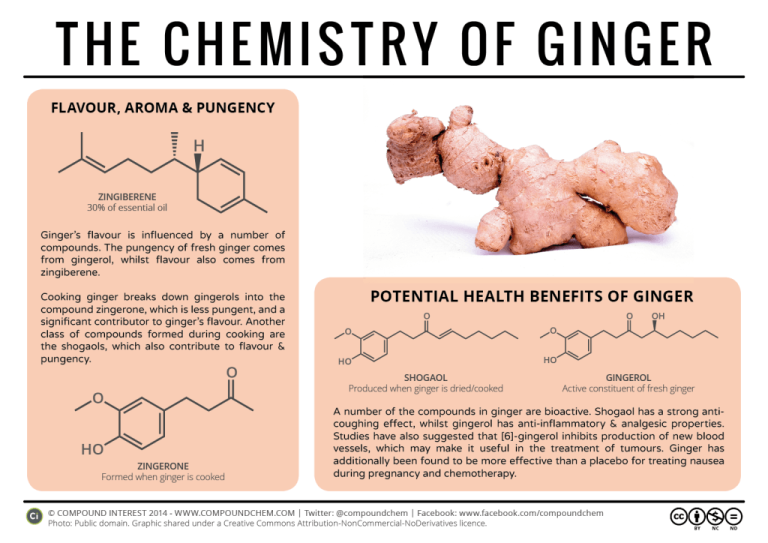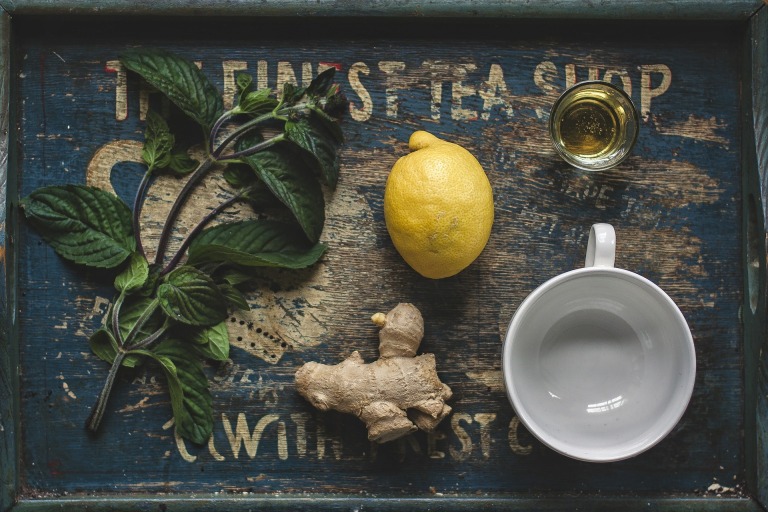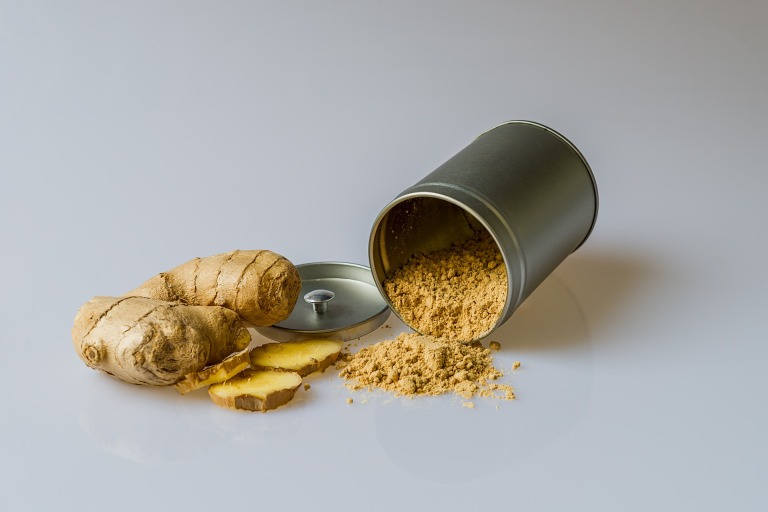
The next ingredient to be reviewed is ginger. Ginger has many studies into it’s use to treat vomiting in pregnancy and to treat nausea during treatments such as chemotherapy or reducing sickness after surgery. Ginger has a long history of being used as a natural treatment for nausea, so one might expect that it could be used to reduce some of the symptoms of IBS. It is one of the most common herbal treatments used by patients to attempt to ameliorate symptoms of IBS (1). The action of ginger on the digestive tract is suggested to be an increase in prokinetic action of the tract (increasing movement or contractions without disrupting the rhythm) and it has also been suggested to be useful in pain reduction. The active ingredients in ginger can be seen in the diagram above and a placebo controlled RCT parallel study in IBS (2) used the pharmaceutical grade ginger containing 2.29 mg/g of gingerols and 6-shogaols. Raw and cooked ginger contain different chemical compounds and may have different modes of action on the digestive tract.

The study had a good choice of placebo (brown sugar) tolerated by most patients with IBS. Study numbers were small – a larger trial with at least 100 patients per group would give a chance of better results. Larger doses appeared to give poorer results from this study, but the numbers in each group were small. We are aware that IBS is a very heterogeneic condition (wide variation in symptoms between people) and studying those people reporting more upper GI symptoms of IBS such as nausea and reflux plus constipation might improve results if the mode of action is to increase stomach emptying and increase digestive tract motility. The study unfortunately did not show that ginger was effective compared with placebo so we have therefore no evidence that ginger is an effective treatment for IBS.

Does it cause harm?
Side effects in the study chosen were greater in the placebo group, the relevance for this is unknown – IBS is a challenging condition to treat with relapsing remitting symptoms – no significance can be seen in regard to side effects as no statistics were applied to check whether this was significant in the study reviewed. Ginger is thought to be a safe treatment – ginger is also suitable to be used for the Low fodmap diet. So a great tasting low fodmap ingredient – but don’t expect it will stop your IBS symptoms.
Just the ticket for a recipe then!

This is a very easy recipe to prepare and these biscuits can be stored in an airtight tin. They may go soft if not stored correctly.

Ingredients
325g Gluten Free self raising Mix (I used Doves Farm)
1 tsp. xanthan gum
a beaten egg
75g muscovado sugar
75g golden syrup
75g butter
2 tsps. ground ginger

Method
Melt the butter, sugar and golden syrup in a pan then cool till the mix is only just warm
Beat the egg
Add the dry ingredients to a bowl and ensure the xanthan gum is mixed into the flour.
Add the wet ingredients to the dry and mix well till the mixture forms a dough.
Work this well.
Roll out the pastry dough into a thin sheet on grease proof paper or a teflon sheet and cut out the biscuits.
Add the biscuits to a greased baking tray and cook till golden brown in a moderate temperature oven – gas mark 4 or 180 degrees C
Makes around 30 biscuits (depending on what size cutter is used.)
1.Van Tilburg MA, Palsson OS, Levy RL, et al. (2008) Complementary and alternative medicine use and cost in functional bowel disorders: a six month prospective study in a large HMO. BMC Complement Altern Med. 2008; 8:46.
2. VAN TILBURG MA, PALSSON O S, RINGEL Y and WHITEHEAD WE (2014) Is ginger effective for the treatment of Irritable Bowel Syndrome? A double blind randomized controlled pilot trial Complement Ther Med. 22(1): 17–20. doi:10.1016/j.ctim.2013.12.015






